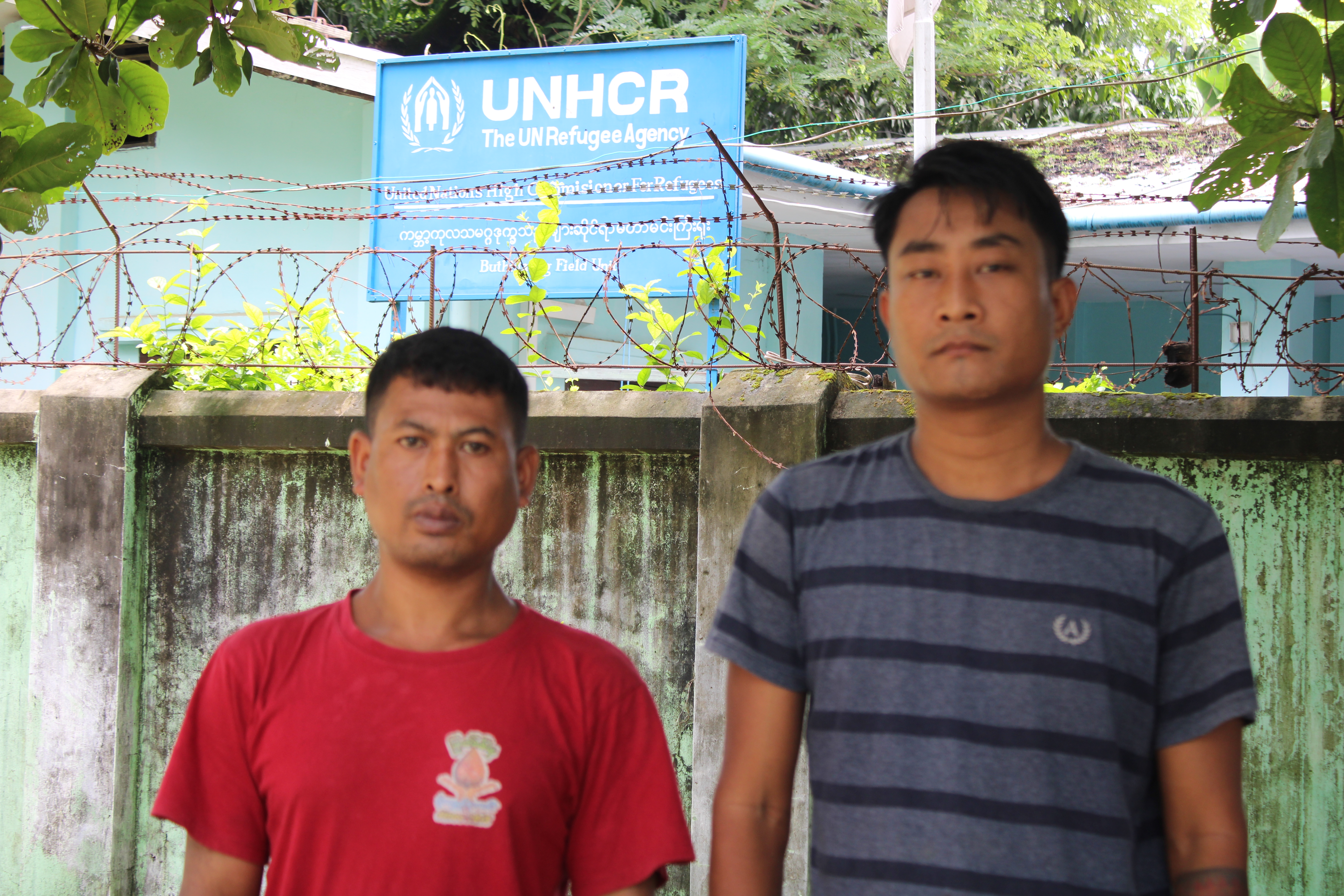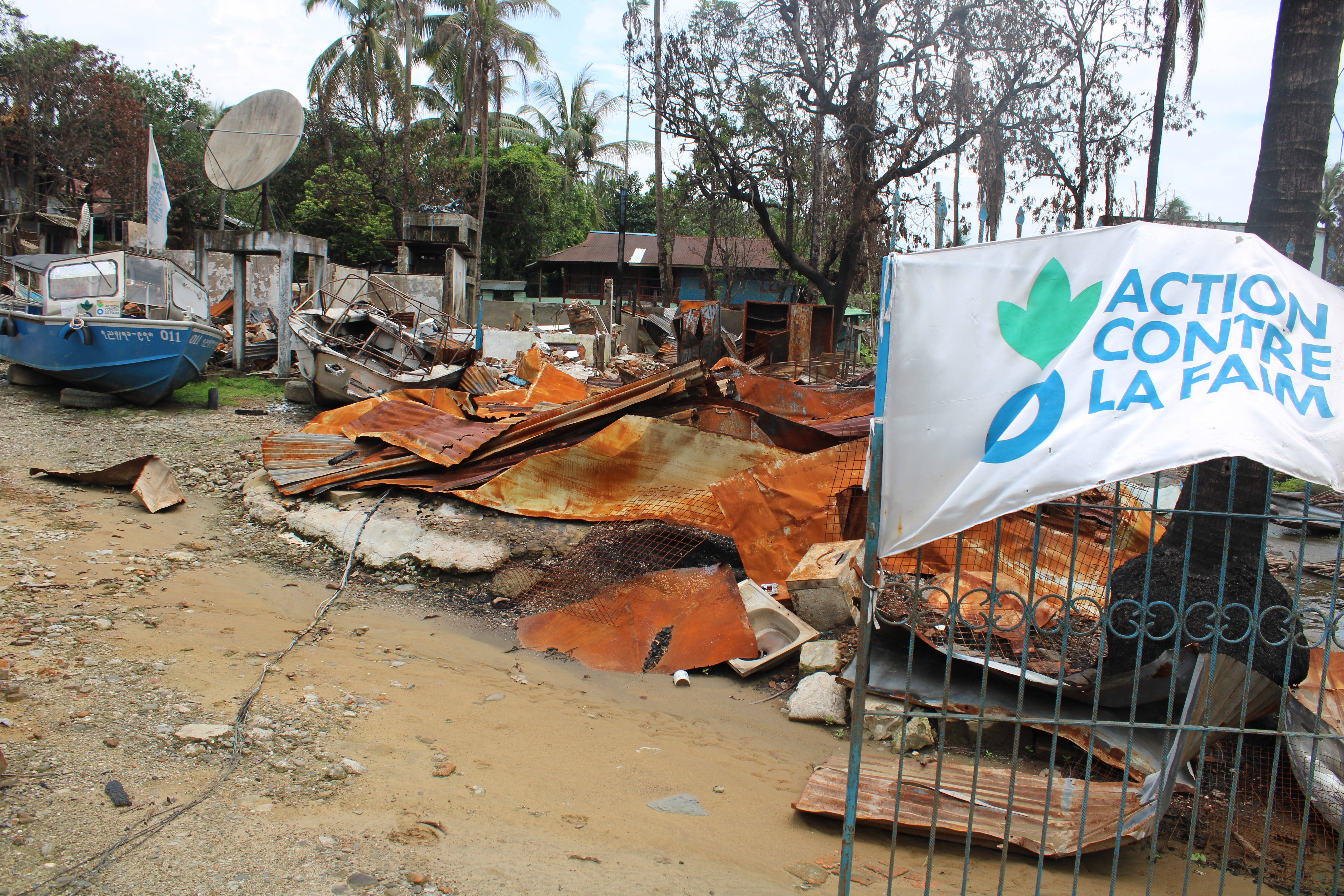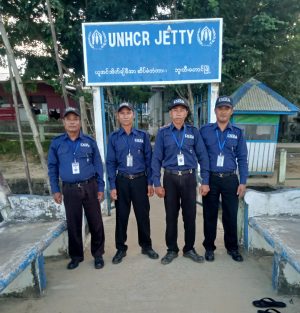At least 10 people were reportedly murdered or went missing at Buthidaung town in Myanmar’s Rakhine State during the violence when the Arakan Army (AA) liberated it from junta control. Suffering the same fate was an employee of the United Nations High Commissioner for Refugees (UNHCR), who succumbed to his injuries after being arrested and tortured by the military.
Fifty-year-old Kyaw Maung was a security officer at the UNHCR office in Buthidaung town. He was picked up for unknown reasons by a military squad on the morning of April 13 and released in the evening.
When his colleagues found him, he wasn’t in a position to talk. They did whatever was possible with the meager resources at their disposal to save his life but it was too late.
I traveled in southern Chin State and Rakhine State — these two regions are contiguous, and southern Chin State is now liberated and under the control of AA — between June 13 June and July 6. On June 21, I interviewed two security officers, Khaing Min Tun and Zaw Myo Lwin, at the UNHCR office in Buthidaung, one of the three offices of the U.N. agency in the township. They shared with me their recollections of the chain of events on April 13 that resulted in the death of their colleague Kyaw Maung.

Arrested by the Military
The violence that commenced in Buthidaung town on April 12 was orchestrated by the Myanmar military and the Rohingya terror outfit Arakan Rohingya Salvation Army (ARSA) to trigger communal strife between the Rohingya and other ethnic communities, in order to delay the AA’s advance.
The six employees at the UNHCR office were uneasy. “We knew that most of the offices of the global agencies in the town were on the target list of the attackers. We were unsure if ours would also be attacked since we had been working to repatriate the Rohingya refugees from Bangladesh,” said Khaing Min Tun. “So we decided to go to the office the next day,” he added.
On April 13, Kyaw Maung informed his colleagues that he would visit a salon located about 2 miles away for a haircut. He decided to stick to his plan despite being advised not to venture out of the office since marauding mobs were on a rampage. Some houses in Wards No 4 and 5 had already been burnt in the town.
Kyaw Maung was expected to return to the office within a couple of hours. When he did not turn up, the other employees were worried but none felt safe enough to go out to search for him owing to the fragile situation in the town.
At around 4 p.m., another UNHCR employee, who was a Rohingya Muslim, came to the office to inform that Kyaw Maung had been arrested by the military as he was about to step out of the salon. The employees in the office immediately informed the two supervisors of UNHCR, Than Hkite Win and Tike Lin Aung, who were also based in Buthidaung town. They were unable to advise on the next course of action to be taken to trace Kyaw Maung.

UNHCR security officers Khaing Min Tun and Zaw Myo Lwin at the UNHCR office at Buthidaung in Myanmar’s Rakhine State. Credit: Rajeev Bhattacharyya
Released Too Late
Two UNHCR employees then decided to meet the military commander at an establishment near the town. The commander said that Kyaw Maung would be released after an investigation but he refused to disclose the reason why he had been arrested. At around 5 p.m., the commander contacted UNHCR Supervisor Than Hkite Win to inform him that Kyaw Maung was being released.
The two employees then brought Kyaw Maung to the office. He was in a semi-conscious state with injuries all over his body. Within minutes of reaching the office, Kyaw Maung fell unconscious.
“There was no hospital where we could take him for treatment nor were any doctors available. There is a military hospital but it was barred for Rakhine Buddhists,” recalled Zaw Myo Lwin, the UNHCR security officer.
Kyaw Maung’s face, neck and legs were swollen. With no other option for treatment available, the other employees massaged his body with a lotion for the whole night and occasionally kept a hot water bag on the injured parts of the body. But he remained unconscious without any improvement in his condition. When the other employees at the UNHCR office realized he had stopped breathing, they desperately pressed his chest. “He started breathing again but only for a short while of about a couple of minutes. Then he shouted and collapsed completely. We knew he was dead,” recalled Zaw Myo Lwin.
Kyaw Maung breathed his last at 6 a.m.
The UNHCR supervisors instructed the employees to explore the possibility of burying Kyaw Maung’s body.
Burying the Body
The burial customs of Rakhine Buddhists involve a long process that cannot be accomplished without engaging a monk. The employees were unsure if the services of a monk could be availed since an overwhelming majority of people from the community had already relocated from the town. A monk who agreed to perform the rituals was located in a monastery. The bigger hurdle was finding a vehicle to carry the body and pick up the monk from the monastery to the cemetery. Some people who were approached turned down the request as they were afraid of being arrested by the military.
“Assistance was received from an unexpected quarter. A Rohingya Muslim who was passing in front of our office in a vehicle agreed to pick up the monk and carry the dead body to the cemetery,” security officer Khaing Min Tun recalled. The body was then wrapped in clothes so that there would be no checking at the military check posts.
After the burial, the owner of the vehicle dropped the monk in his monastery and the employees of UNHCR at their office.

The burnt office of Action Contre La Faim (Action Against Hunger) at Buthidaung in Myanmar’s Rakhine. Credit: Rajeev Bhattacharyya
NGO Workers Being Specifically Targeted
Kyaw Maung’s arrest came against the backdrop of the Myanmar military’s decision to target NGOs, including global humanitarian agencies, and their workers in Rakhine State. According to the employees at the UNHCR office, a worker attached to a local NGO also went missing in Buthidaung town. But this could not be independently verified by The Diplomat.
There were reports of NGO workers vanishing from other parts of Rakhine State as well. One incident on March 14 that received wide media coverage was of a woman NGO worker, Ma Thidar Soe, who went missing from Kyeintali in Gwa Township.
“The military assumed that benefits from these NGOs are going mostly to the Rakhine Buddhists. This was reason enough for the military to unleash violence on them,” said Aung Thaung Shwe, who has been appointed chief administrator of Buthidaung by the United League of Arakan, the AA’s political front. “Most of the employees in the local and global NGOs are Rakhine Buddhists. So NGOs and their workers are specifically targeted by the military,” he explained.
For decades, the Myanmar military was targeting the Rohingya Muslims in Rakhine State with the most infamous episode happening in 2017 when over 700,000 people from the community were forcibly driven out to Bangladesh. However, the situation began changing in the late 2010s with the AA’s emergence and its campaign to liberate the region from the military. The rebel outfit cultivated a massive support base among the Rakhine Buddhists, which explains the military’s aggressive attitude towards the community.
In the six days I was in Buthidaung Township, I saw the damaged and burnt offices of Medecins Sans Frontiers (MSF) and Action Contre La Faim (Action Against Hunger). Their employees were reportedly not in the office when the military-supported mob raided the establishments.
The UNHCR did not reply to my email soliciting a response to the death of Kyaw Maung in Buthidaung.

































